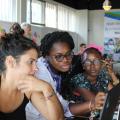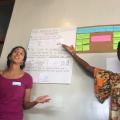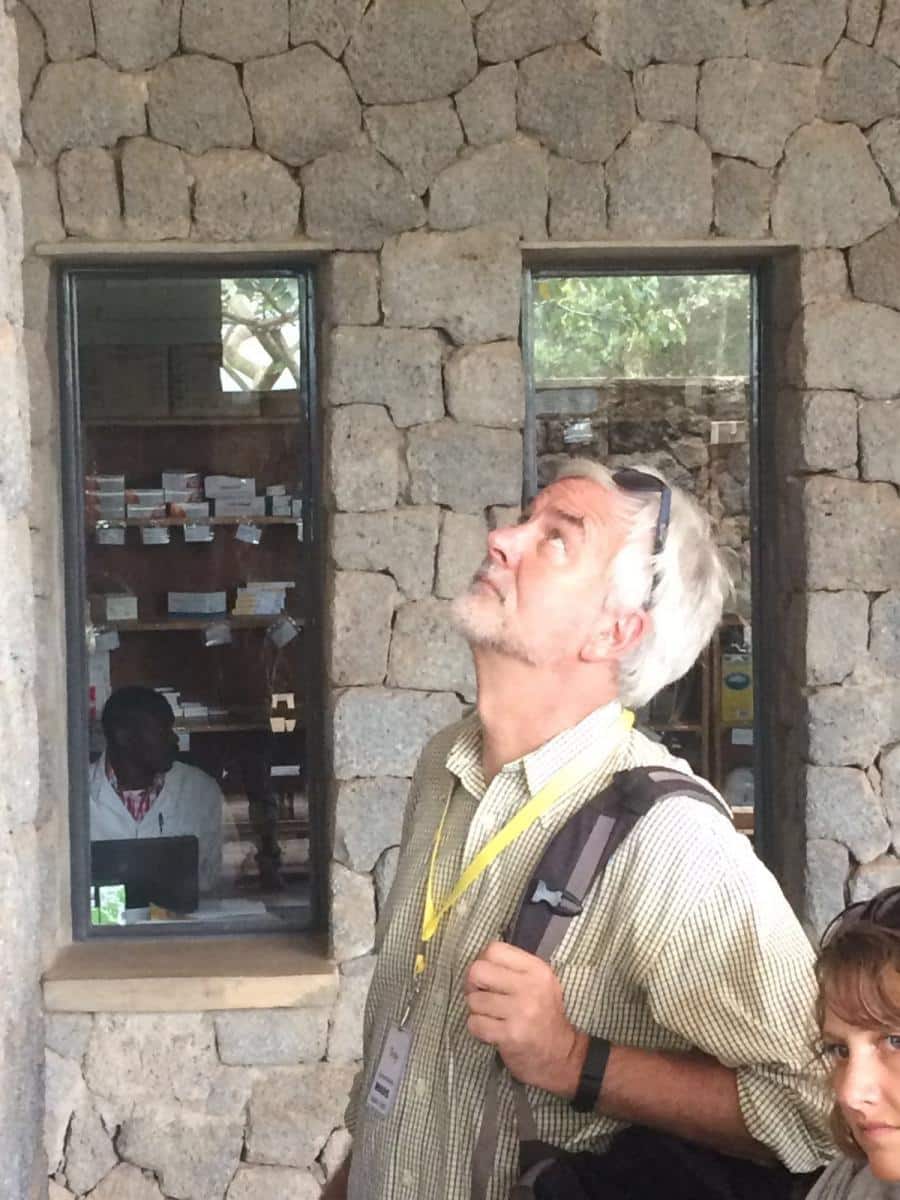I’d been in Rwanda for only forty-eight hours on Team4Tech’s latest project and already I’d heard something completely unexpected. I was talking with a local man who said – with complete and total sincerity – “I see new roads, new schools. I feel my government is working for me every day. I pay taxes, but each day I know what I am getting in return.” To me, used to the gripes and frustrations most people have with their governments, this is truly a stunning statement. But after my three week stay in Rwanda, I have a better understanding of what he was getting at and why others I met shared similar opinions.
Urban growth is palpable in Rwanda. Cranes adding mid-rise office buildings seem to be around every corner in of capital. New roads are put in place overnight and get robust use the very next day. During my stint in Kigali a 500 meter stretch of road I drove by every morning acquired entirely new landscaping. According to my Rwandan colleagues, the traffic circle in front of the office was built so quickly that the fire department didn’t know it was there. They just raced right over the new curbs on the way to a recent emergency call.
MASS Design and the African Design Center: Designing for social impact
MASS Design Group (MASS) is also part of this growth renaissance. The ten Autodesk volunteers I traveled with on this project worked with 11 architecture and design follows sponsored by MASS’s African Design Center (ADC) along with MASS’s professional staff. The project’s goal was twofold: first, to increase the capacity of MASS to design and build projects with social impact, and second, to use local African skills, expertise, and resources while doing so.

The ADC fellows are driven, creative, and problem solvers. Where we might see limitations and barriers ADC fellows see opportunities and future impact. These fellows have come from all across the African continent to learn about sustainable, community driven design. Their desire to solve everyday problems for the people who will live and work in the structures they design and build comes from lived experience and a sense of responsibility to their communities. Their drive is relentless and their vision concrete.
This sense of responsibility was most palpable during the day long Innovation Lab workshop, which engaged ADC fellows, MASS staff, and representatives from half a dozen community organizations. Forty-five people jammed into one room, split into teams, and dove into the task of solving community problems related to health, education, and sanitation. Five hours later the teams had viable solutions that were ready to be tested in the real world.
In many workshops the purpose of the exercise – to practice using an innovative problem solving technique – would be enough. It would be just an exercise. People would admire each other’s work, shake hands, exchange a phone number or two and be on their way.
Not this time. With ADC fellows taking the lead, each working group wanted more information from the workshop organizers. How was this work going to be carried forward? Who were the right people to be in touch with about implementation? Where could these ideas be tested? The ADC fellows kept bringing these questions up, again and again, for the remainder of our time in-country, and they plan to keep exploring how to bring these solutions to life.
Project closing marks a new beginning
Team4Tech volunteers quickly realized that their training in Human Centered Design was a perfect match for the ADC fellows’ sense of possibility and desire to execute. During the final week of the project ADC fellows took on more and more responsibility for creating solutions, particularly related to project deliverables, while our volunteers moved into more mentorship-like roles.
On the project’s final day MASS staff listened as fellows presented their ideas for carrying forward the software training and program of community engagement. The fellows also rolled out a design-build communication plan to better serve projects and the people who build them.
MASS staff were blown away by the energy and insights of the ADC fellows, people who the staff had invited to Kigali to train and mentor. As with many of Team4Tech’s projects, by the end, it became a question of just who was training whom. The people of Rwanda are investing in their future, and they fully plan to get a whole lot in return.

